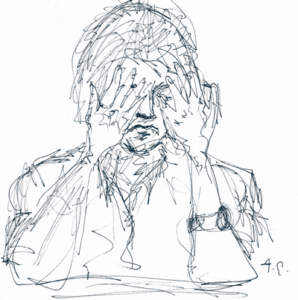Relaciones
- Aumento de la red social: Facilitar la participación de la persona con LCA en actividades que le permitan conocer y relacionarse con otros, de forma de aumentar el número de contactos sociales.
- Intervenciones psicológicas: En algunos casos el aislamiento social puede relacionarse con cambios negativos en la identidad del sobreviviente o en una vivencia negativa de las relaciones sociales luego de la lesión. En estos casos, aumentar los contactos sociales no es suficiente y se necesita abordar los problemas psicológicos que dificultan relacionarse con otros.
- Grupos de pares: Diversos estudios han mostrado que compartir con otras personas que han sufrido una lesión cerebral facilita reconstruir un sentido de pertenencia y normalidad.
- Desarrollo de comunidades amigables con la lesión cerebral: Las comunidades amigables son ciudades, pueblos o áreas geográficas donde las personas con LCA son comprendidas, respetadas y apoyadas. Esto permite que las personas con LCA puedan vivir con la mayor independencia posible y recibir la ayuda adecuada cuando es necesaria.
- Campañas públicas de concientización sobre la lesión cerebral: La visibilización de la lesión cerebral permitirá sensibilizar a la población sobre los particulares problemas visibles e invisibles de las personas con lesión cerebral. Esto disminuye la probabilidad de generar interacciones sociales negativas y aumenta la ocurrencia de acciones afirmativas.
Referencias
Hux, K., Schram, C. D., & Goeken, T. (2006). Misconceptions about brain injury: A survey replication study. Brain Injury, 20(5), 547-553.
Hagger, B. F., & Riley, G. A. (2017). The social consequences of stigma-related self-concealment after acquired brain injury. Neuropsychological rehabilitation.
Nochi, M. (1998). Struggling with the labeled self: People with traumatic brain injuries in social settings. Qualitative Health Research, 8(5), 665-681.
Northcott, S., Moss, B., Harrison, K., & Hilari, K. (2016). A systematic review of the impact of stroke on social support and social networks: associated factors and patterns of change. Clinical Rehabilitation, 30(8), 811-831.
Salas et al., (en prensa) Social Isolation after Acquired Brain Injury: Exploring the Relationship Between Network Size, Functional Support, Loneliness and Mental Health. Neuropsychological Rehabilitation.
Shannon, K., Bail, K., & Neville, S. (2019). Dementia‐friendly community initiatives: An integrative review. Journal of clinical nursing, 28(11-12), 2035-2045.


